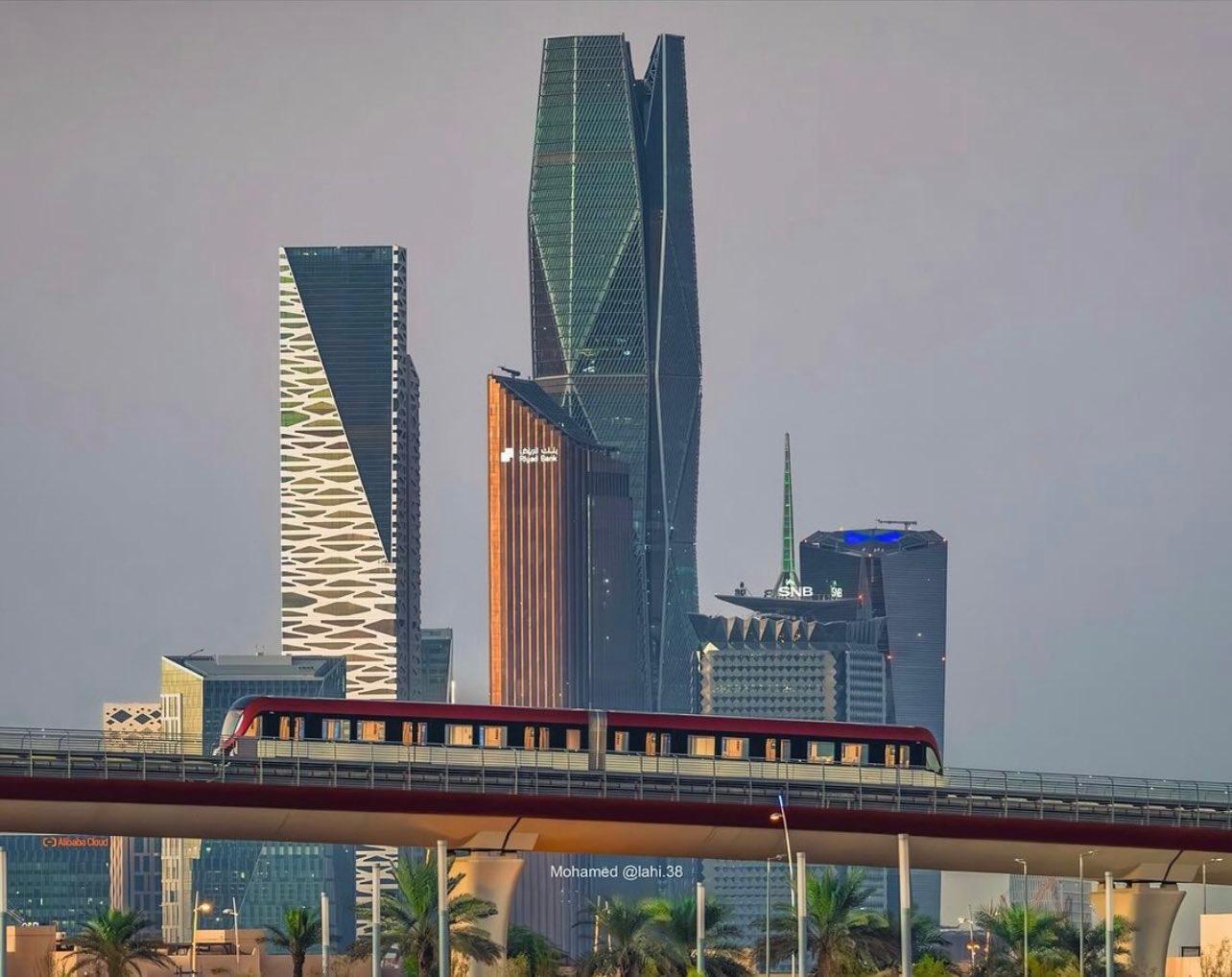Today, Riyadh Metro, which now has three lines in operation, is gearing up for its formal launch.
According to Saudi news outlets, the remaining three will open in mid-December.
Overview of Major Riyadh Metro Lines
According to Saudi sources, the three lines from Al-Urubah to Al-Batha, King Khalid Airport Road, and the intersection of Sheikh Hassan bin Hussein and Abdul Rahman bin Auf will all open at full capacity on November 27.
Authorities have urged Riyadh Metro to offer competitive ticket prices to attract more passengers, aiming to reduce capital congestion by 20% to 30%. They will announce ticket prices and discounted packages for metro passengers within days.
The Riyadh Metro will open additional stations on King Abdullah, Medina, and King Abdulaziz roads in mid-December to enhance its operational capacity and expand further in the coming years. The launch will likely occur at the end of this year or early 2025 to optimise efficiency and alleviate traffic on Riyadh’s streets.
Notably, the 176-kilometre railway network has 84 stations and covers the most crowded areas, government buildings, commercial, educational, and health activities. It is connected to major universities, the city centre, the public transportation hub, King Khalid International Airport, and King Abdullah Financial Centre.
The Riyadh Metro’s four main stations are the Government Palace area station, King Abdullah Financial Centre station, Western station, and STC station, all located at the train track intersection. These stations offer air conditioning, internet access, and trip information systems, with some having stores and parking spaces.
According to the Royal Commission for Riyadh City, the public transit train project intends to “reduce excessive use of private vehicles, boost the local economy, and preserve the environment. 6 train routes, 84 train stations, 80 bus routes, 2,860 bus stations, and 842 buses” stated that the Riyadh Metro will help ease traffic and link the different parts of the kingdom.
Read more The Riyadh Metro Project is Moving Forward Faster in Saudi Arabia
A Game-Changer for Riyadh
Compared to the Chinese Shanghai Metro, which will surpass the Riyadh Metro as the longest metro network in the Middle East and North Africa in 2024 with a length of 831 kilometres and 508 stations, the Riyadh Metro will revolutionise transportation in Riyadh by providing an alternative to automobiles. 
It will also turn the Saudi capital into a hub for trade and business and diversify its economy in the face of fluctuations in the price of crude oil globally.
As a result, demand will rise, and real estate values and stores along the metro line will rebound. Real estate experts acknowledged that, like other nations, the local residential and commercial real estate markets will undergo changes in dynamics.
The anticipated business activity may help pull the rug out from under the capital’s priciest neighbourhoods. The residential real estate sector will benefit from easy mobility as well. Real estate expert Al-Aboudi bin Abdullah, for his part, predicted that as more people and businesses look to take advantage of the metro’s convenient access and transportation, the demand for real estate near the Riyadh metro stations—whether for sale or rental—will rise, driving up the prices of these areas, which he described as extremely appealing.
He clarified that the impact of significant projects like the Riyadh Metro and others on the real estate market is reflected in the 2.6% increase in the real estate price index in the third quarter of 2024 compared to the same quarter in 2023, according to data from Saudi Arabia’s General Authority for Statistics.
Read more Saudi Arabia is Rapidly Emerging as a Global Hub for Construction due to Massive Investments
Metro Proximity: A Valuable Asset in Real Estate
Real estate prices in remote locations could stay the same or even slightly rise, while regions near its stations will see price increases as a result of increasing demand.
The Riyadh Metro, according to Abdul Majeed Al-Talhi, general manager of Maskan Mawthoq Real Estate, is an extension of the major infrastructure and would alter the dynamics of the residential and commercial real estate markets, particularly in the neighbourhoods around the metro stations.
According to press statements, Al-Talhi stated: A lot of people don’t realise how valuable it is to be close to metro stations, how important they are, and how they help them with their transportation. As a result, some of them came to me with advice to sell their property, citing potential inconveniences like construction.
In the King Abdulaziz Public Transport Project in Riyadh, he emphasised, the Riyadh Development Authority regulates land use and development controls for areas surrounding train and bus stations, which stimulates investments so that the city and its residents can benefit from the project. He also stressed that the increase in investment returns for areas adjacent to the metro will directly affect their ability to attract investments and many companies will move to develop these areas.
The metro system uses energy-efficient trains and stations, as well as technologies like regenerative braking to lower energy consumption and outfitting some stations with thousands of solar panels. Thus, the project incorporates some sustainable features and improves environmentally friendly transportation options. Each metro station along the six lines will receive electricity from renewable energy sources.
Read more Saudi Arabia’s Public Investment Fund Allots Significant Funding for Green Initiatives